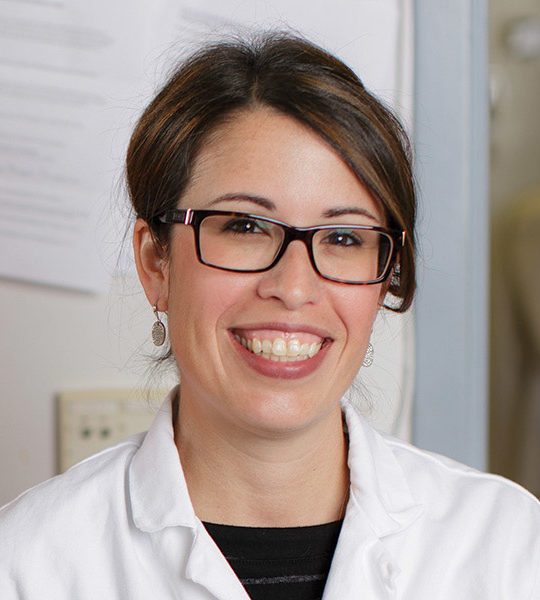Shannon Boye, Ph.D.
Shannon Boye, Ph.D.
Associate Professor of Ophthalmology
College of Medicine
2019 Awardee
Shannon Boye’s research focuses on treating human retinal blindness. Throughout her career, she has identified ways to move gene therapy forward as a solution for a number of blinding eye diseases.
“I want to help children affected by congenital blindness to have something many of us take for granted,” Boye said. “I want them to see their parents’ faces, the colors of the rainbow and easily become whatever they want to be when they grow up.”
Boye understands the different key issues that complicate this move to the clinic for human conditions.
“I fully comprehend that discovery science is not my only ‘job’ when seeking an increase in quality of life for patients,” Boye said. “Carefully assessing whether a gene therapy will be safe by performing relatively ‘mundane’ studies (dose-response, for instance), is just as important as the more gratifying experiments.”
Thus far, one of Boye’s most significant contributions to her field relates to developing a gene therapy for a severe congenital disease that causes blindness in children. She identified the necessary components to target cells in the eye affected by this disease and successfully restored retinal function and useful vision over the long term to three different mouse models of the disease.
Boye secured both domestic and international patent protection on this technology, which was recently licensed by the pharmaceutical company, Sanofi. Earlier this year they received FDA approval to initiate Phase I/II clinical trials to treat this disease.
Boye is the recipient of several major awards including the ARVO Foundation/Merck Innovative Ophthalmology Research Prize, a Technology Innovator Award, the MOMS for Sight Visionary Award and the Gund Harrington Scholar Award. She is also the youngest recipient of the Foundation Fighting Blindness’s Board of Directors Award.
To date, Boye has given 65 invited lectures, published 53 peer-reviewed original research papers, 5 book chapters, and over 70 conference abstracts on the development and application of gene therapies for hereditary retinal degenerations. Several of her publications have received 100 or more citations to date. She is actively funded by two R01’s from the NIH, private industry, and the Foundation Fighting Blindness.


